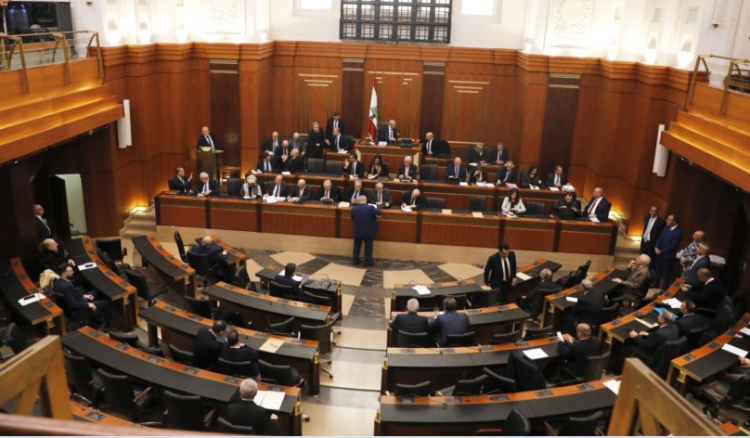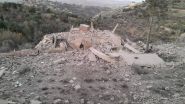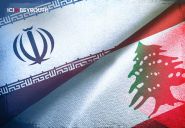
During Wednesday’s parliamentary session, two major corruption cases were discussed. In the first, a former Minister of Industry, now an MP, is being pursued by the judiciary. In the second, tied to the telecom sector, three former ministers are under suspicion.
Parliament approved on Wednesday, the lifting of parliamentary immunity for MP and former Minister of Industry Georges Bouchikian by a vote of 99 in favor, with only one abstention. The decision was taken during a plenary session held in the morning at Nejmeh Square. The session also included hearings for former Ministers of Telecommunications Boutros Harb, Nicolas Sehnaoui, and Jamal Jarrah, and the examination of several legal cases.
Parliament voted with 88 votes in favor to refer Harb, Sehnaoui, and Jarrah to a parliamentary investigative committee. The committee will look into the 2019 Telecoms scandal involving alleged misuse of public funds. Based on the committee’s findings, it will be determined whether one, some, or all of them should be referred to the Higher Council, which is responsible for trying presidents and ministers.
Nine MPs voted against the referral, and two abstained. Those opposed argued that Speaker Nabih Berri should have submitted each former minister’s case individually to a vote, rather than as a group.
Industry Ministry Case
Regarding the Industry Ministry case, on July 8, Judge Jamal Hajjar, Public Prosecutor at the Court of Cassation, requested that Bouchikian’s parliamentary immunity be lifted. He is suspected of “embezzlement, forgery, and extortion” during his term as Minister of Industry from 2021 to 2025.
Georges Bouchikian becomes the second minister in Najib Mikati’s 2021–2025 cabinet to face a corruption investigation, following former Minister Amine Salam, who is currently detained over a bribery case.
In a statement released Monday, Bouchikian said he had left Lebanon on July 7 for a long-planned personal and family trip at a time when no formal procedure or request for lifting his immunity had yet been filed. He expressed confidence in Parliament’s ability to make an impartial decision, free from media or populist pressure, and in line with the Constitution and state institutions.
Former Ministers Defend Themselves
Speaking at Parliament, Boutros Harb firmly denied the allegations. “My conscience is clear. I did not violate the law. On the contrary, I acted to protect public funds,” he said. He referred to his decision to terminate the controversial Kassabian building lease, describing it as a necessary measure. “I’m the one who stopped the waste. It’s regrettable that the judiciary has placed me in the position of the accused.”
Nicolas Sehnaoui also declared his willingness to waive his immunity, had it been legally possible. “My conscience is clear as well,” he affirmed. Regarding the Kassabian building, he said he acted based on the recommendation of Zain International, which allegedly confirmed the building’s structural integrity and proposed the site as the most suitable. His lawyer, Naoum Farah, urged MPs not to rush the referral.
Former Minister Jamal Jarrah also condemned the procedure as unfair. “The financial prosecutor never requested any documents from us; we learned of the charges through the media,” he said.
Session Highlights
At the start of the session, several MPs raised concerns about the role of the Higher Council, which has often been criticized for its ineffectiveness.
During the debate, MPs emphasized the need for a solid evidentiary basis for the Telecoms investigation. MP Yassine Yassine noted that “many reports from the Court of Audit are available,” and stressed that the committee “must rely on these documents to support its charges.”
Jihad Samad argued that the case extends beyond procedural issues. Listing several violations in the telecom sector, he called for “lifting all immunities, except that of the presidency,” and holding former ministers accountable. “Everyone must be equal before the law, without exception,” he said.
Ahead of the session, several lawmakers commented on the symbolic and legal significance of lifting immunity. Lebanese Forces (LF) MP Razi El-Hage emphasized that Parliament must reclaim its oversight role and not become “a place where justice disappears.” His colleague Antoine Habchi (LF) praised the process as a healthy democratic exercise, urging MPs not to hide behind their status to evade justice.
MP Nabil Badr cautioned that lifting immunity is not a trivial matter. “An MP represents a large electoral base and is subject to the law. It’s not so simple,” he said.
Kataeb MP Salim Sayegh stressed the importance of empowering the judiciary while reminding that Parliament “is not a prosecuting authority.” “We must not grant immunity but rather protect the judiciary so that it can carry out its duties freely,” he said. Sayegh also pointed to ministerial responsibility in the sensitive telecoms file, highlighting that reports from the Court of Audit call for accountability.
The session was repeatedly interrupted due to power outages and audio system malfunctions, causing temporary halts in proceedings.



Comments